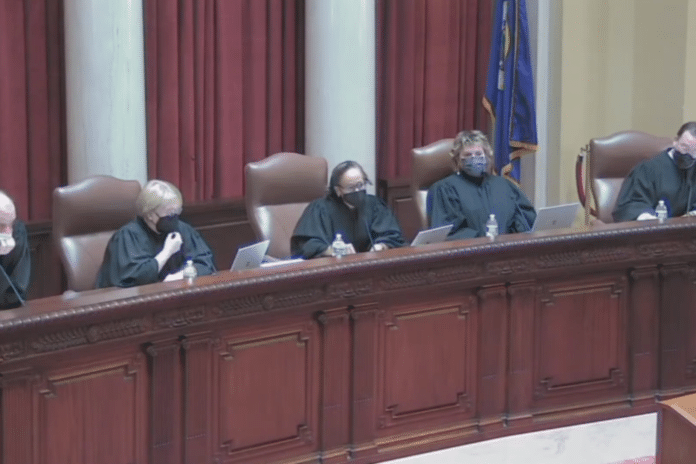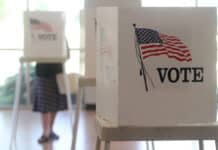
The Minnesota Supreme Court has ruled that cities and counties can conduct statewide elections without a strict party balance on absentee ballot boards.
Upholding a previous decision by the state’s court of appeals, Justice Barry Anderson published a 25-page ruling Wednesday dismissing the Minnesota Voters Alliance’s lawsuit against Ramsey and Olmsted counties and the city of Duluth, with the Republican Party of Minnesota listed as a co-plaintiff.
The lawsuit had argued the defendants were violating state law by appointing “hand-picked staff and government union members” to their absentee ballot boards, instead of election judges providing equal representation for both the Democratic and Republican parties.
Anderson wrote that the Alliance’s suit does not hold water in the face of the law’s “plain language.” Referencing the section of the Minnesota Statutes which says “election judges performing the duties of this section must be of different major political parties,” Anderson argued it only refers to election judges who examine the signature envelopes of each ballot.
“It may well be, as the Alliance argues, that some or all of the specific duties of the ballot board would be best performed by election judges balanced by political party rather than deputy county auditors. But no language in the statute at issue here so requires, and the issue of how ballot boards should operate belongs to the Legislature as the elected representatives of the people,” he wrote.
The court also found that the Alliance “overlooked” the law’s plain language vis-a-vis “bona fide” deputy county auditors, saying their political affiliations do not need to be disclosed before appointment.
“The Alliance argues that when absentee ballot boards contain deputy county auditors those deputies must be appointed subject to the same requirements as election judges. And the Alliance argues that only a limited group of pre-existing ‘bona fide’ deputy auditors may serve on absentee ballot boards. Both arguments fail,” the ruling reads. “We therefore hold that the Alliance has failed to prove the violation of a duty clearly established by law.”
In response to the ruling, Minnesota GOP Chairman David Hann issued a statement expressing the party’s disappointment and disagreement with the Supreme Court.
“The Court’s opinion ignores the legislature’s clear intent to ensure that local governments constitute balanced ballot boards from the lists submitted from both major political parties,” he said.
Hann also accused Secretary of State Steve Simon and his “allies” of subverting the “will of the people” in an attempt to give the Democratic Party an “electoral advantage.”
“Today’s ruling is yet another reminder that we need to keep working hard to elect Republicans up and down the ballot to fight for election integrity and make sure election laws are written and enforced in ways that do not favor one political party,” he said. “Our team of grassroots volunteers will keep recruiting election judges around the state to ensure the fairness and integrity of our elections.”
















